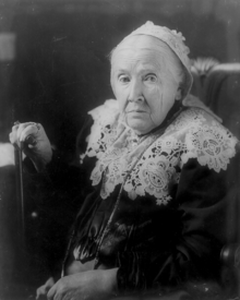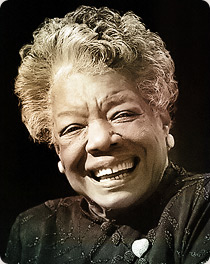 By Yoon Joung Lee The famous author of, “The Battle Hymn of the Republic,” Julia Ward Howe, was born in New York City in 1819. Her father was a successful Wall Street banker, Samuel Ward and her mother was a published poet, Julia Rush Cutler, who was a granddaughter of William Greene, Governor of Rhode. Howe was the third of seven children. When she was five, her mother died shortly after giving birth to her seventh child and her father’s influence dominated the childrens’ lives. From an early age, Julia Ward was educated by tutors and private schools. She learned French from early childhood and began to learn Italian at 14. She was also able to speak German and read Latin and Greek. She was an intelligent child who utilized her family’s library to culturally expand herself, when women were very limited in their educational endeavors. Her family home had an extensive library and art gallery. At her library she became acquainted with writers such as Balzac and Sand without her father’s knowledge. The writer’s liberal and modern views contrasted with her father’s Calvinistic vision. In 1843, Julia met and married Samuel Gridley Howe who was famous for his work on behalf of the Greek Revolution, reform work for prisoners, and support of education for the blind. However, their marriage did not go well. They were separated after 9 years of marriage in 1852. Her husband wanted her to attend to “wifely duties” like rearing children and reading philosophy. She brought her two youngest kids to her sister’s place in Rome. Not too long after her return, she anonymously published her work “Passion Flowers,” a collection of poems. The poems were sensational by talking about the intimate affairs of a ‘real’ man and woman and the author’s identity quickly became an open secret. Around that time, she found a new resolution for her depression from her husband. She became involved in the reform movement and supported various issues like abolition, womens’ rights, prison reform and education. From her activities, she also met the Boston intellectual elite such as William Ellery Channing, Thomas Wentworth Higginson, and Theodore Parker. While her husband strongly objected to her outside works, he also depended heavily on his wife as editor and writer for his newspaper, The Commonwealth. Although Julia was prevented from some of the work she liked to be involved in, she tried her best to free herself from her husband’s demands and developed her own interests. When her poem, Battle Hymn of the Republic, was published in 1861 after she and her husband visited Washington D.C. and there met Abraham Lincoln at The White House, she became an instant celebrity and the poem became a national anthem of sorts. In 1870, she first proclaimed Mother’s Day, which she envisioned as a day of solemn council where women from all over the world discuss about the means to achieve world peace. From 1872 to 1879, she helped Lucy Stone and Henry Brown Blackwell in editing Woman’s Journal. In 1874 after her husband died, she focused more on her interests in reform. She founded the Association of American Women which advocated for womens’ education. She also worked for various organizations like the New England Womens’ Club, the Massachusetts Woman Suffrage Association, the New England Suffrage Association, and the American Woman suffrage Association. In 1908, she was elected to the American Academy of Arts and Letters as the first woman. Julia Ward Howe died in 1910 at her home, Oak Glen in Rhode Island, at the age of 91. Her funeral services were held at Church of the Disciples and at Symphony Hall by overflowing crowds. In 1916, her children collaborated and published her biography and it won the Pulitzer Prize.  By Yoon Joung Lee Writer and African American activist, Maya Angelou was born in 1928 in St. Louis, Missouri and raised in St. Louis and Stamps, Arkansas. She spent her difficult formative years moving back and forth between her mother’s and grandmother’s. During her early years in Stamps, she experienced brutality from racial discrimination. But, she also learned the unshakable faith of African-American society and their values.When she was 8, her mother’s boyfriend raped her. The mother’s boyfriend got killed by her uncles later, but the event caused her to go mute for almost 6 years. During her teens and early twenties, her love for the arts made it possible to win a scholarship to study dance and drama at San Francisco’s Labor School. The arts for this little girl filled with her with isolation and experimentation. At 14, she dropped out of school and became San Francisco’s first African-American female cable car conductor. She later finished high school and gave birth to a son, Guy, at age 16, a few weeks after graduation. To support her son, as a young single mother, she worked as a waitress and cook. But nothing could stop her passion for music, dance, performance and poetry; which would soon take her center stage. From 1954 to 1955, she toured Europe and Africa as part of the musical, Porgy and Bess. She studied modern dance with Martha Graham who was a prominent American modern dancer, often compared with the influence Picasso had on modern visual arts. She was also on a variety of TV shows with Alvin Ailey, who is a founder of Alvin Ailey American Dance Theater in NY and is credited with popularizing modern dance. In 1957, she recorded her first album, Calypso Lady. In 1960s, she returned to New York City to join the Harlem Writers Guild. There, she began her life as an actress in the historic Off-Broadway production of Jean Genet’s The Blacks and wrote and performed Cabaret for Freedom. She became involved in black activism. In 1957, she recorded her first album, Calypso Lady. In 1960s, she returned to New York City to join the Harlem Writers Guild. There, she began her life as an actress in the historic Off-Broadway production of Jean Genet’s The Blacks and wrote and performed Cabaret for Freedom. She became involved in black activism. In 1960, she went to Egypt to serve as editor of the English language weekly, The Arab Observer. The next year, she moved to Ghana to teach at the University of Ghana’s School of Music and Drama. She also worked as feature editor for The African Review and wrote for The Ghanaian Times. During her time abroad, she mastered various languages; French, Spanish, Italian, Arabic and the West African language Fanti, and she began to take her life, her activism and her writing more seriously. In 1964, she came back to America with Malcolm X, who she met in Ghana, to help him establish his new Organization of African American Unity. However, not too long after their arrival in the United States, Malcolm X was assassinated. The organization dissolved and Dr. Angelou was asked to serve as Northern Coordinator for Southern Christian Leadership Conference by Dr. Martin Luther King, Jr. In 1968, around her birthday, King was assassinated. With the help of her friend, the novelist James Baldwin, she published her first autobiography, I Know Why the Caged Bird Sings, in 1970. The novel tells of her first seventeen years. It earned enormous popular success internationally and was nominated for a National Book Award. Without her intention of writing a series, she wrote five additional volumes. Drawing from her own life experience in I Know Why the Caged Bird Sings, she became the first African American woman who publicly shared her personal life and she is highly respected as a voice for African Americans. She has served on two presidential committees, received the Presidential Medal of Arts in 2000, and the Lincoln Medal in 2008. She also has received 2 Grammy Awards. In 1993, President Clinton requested her to compose a poem and read at his inauguration. Her poem, On the Pulse of the Morning, was broadcast live all over the world. Dr. Angelou will not stop energizing our spirits and bodies as well as healing our hearts by her words and actions. |
Archives
July 2017
Categories
All
|
 RSS Feed
RSS Feed